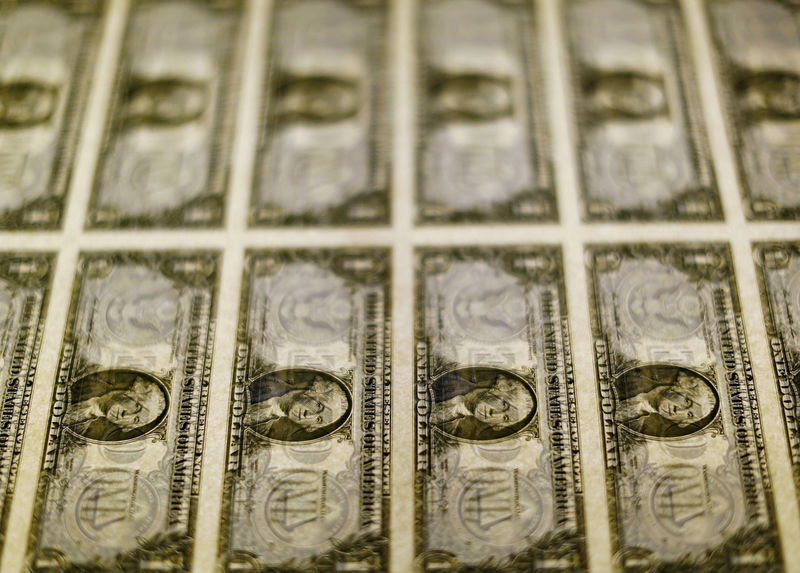Investing.com - The dollar remained broadly higher against other major currencies on Friday, despite the release of disappointing U.S. consumer sentiment dats, as recent comments by U.S. President Donald Trump continued to lend support.
EUR/USD slid 0.30% to a fresh two-week low of 1.0627.
In a preliminary report, the University of Michigan said its consumer sentiment index fell to 95.7 in February from 98.5 the previous month, compared to expectations for a slip to 97.9.
But the dollar remained supported after U.S. President Donald Trump said on Thursday that he would announce the most ambitious tax reform plan since the Reagan era in the next few weeks.
During a meeting with airline CEOs on Thursday, Trump promised a “phenomenal” tax plan, without giving any specific details of the plan.
Meanwhile, sentiment on the euro was still fragile amid concerns over the possibility of a Brexit or Trump-style shock result in France’s upcoming presidential election.
Worries over elections in the Netherlands, Germany and possibly Italy, as well as the ongoing row over Greece's bailout added to concerns over political risk in the euro area.
Elsewhere, GBP/USD fell 0.22% to 1.2469.
The pound shrugged off an earlier report by the U.K. Office for National Statistics showing that manufacturing production rose 2.1% in December, beating expectations for a 0.5% gain. Year-on-year, manufacturing production increased by 4.0% in December.
The report also showed that industrial production rose 1.1% in December, more than the expected 0.2% gain.
Data also showed that the U.K. trade deficit narrowed to £10.89 billion in December from a revised £11.56 billion in November.
USD/JPY added 0.27% to 113.55, the highest since February 1, while USD/CHF gained 0.30% to 1.0047.
Japanese Prime Minister Shinzo Abe and Trump were set to hold a two-day summit in the U.S., starting on Friday. Trade and currency issues were expected to be in the spotlight.
The Australian and New Zealand dollars were higher, with AUD/USD up 0.60% at 0.7669 and with NZD/USD adding 0.13% to 0.7196.
The two currencies were helped by earlier data showing that China’s imports climbed by an annualized rate of 16.7% in January, while exports rose 7.9%.
China is Australia’s biggest export partner and New Zealand’s second biggest export partner.
Meanwhile, USD/CAD dropped 0.54% to trade at 1.3074.
The loonie was boosted after Statistics Canada reported that the number of employed people rose by 48,300 in January, confounding expectations for a 5,000 decline.
The report also showed that Canada’s unemployment rate ticked down to 6.8% last month from 6.9% in December. Analysts had expected an unchanged reading in January.
The U.S. dollar index, which measures the greenback’s strength against a trade-weighted basket of six major currencies, was up 0.22% at a two-week high of 100.88.
